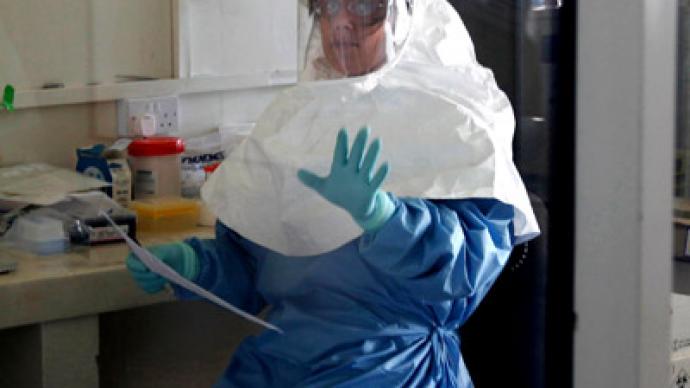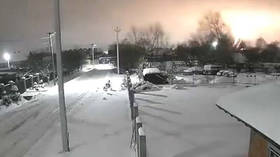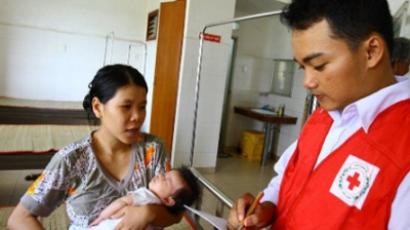Panic in Uganda as outbreak of deadly Ebola virus spreads

The Ugandan Government has created an emergency task force to deal with an outbreak of the Ebola virus. Dozens of terrified patients have fled hospitals afraid of contracting the disease, making quarantine near-impossible.
The onset of the virus outbreak – the third in the last 12 years – has caused the deaths of at least 14 people in western Uganda.
Depending on the strain the Ebola fatality rate can be up to 90 per cent.
Health officials said the first cases were registered at the beginning of July, but only now have been confirmed as Ebola. In total, 20 people have been infected over the course of the month. Six more cases have been confirmed on Monday, bringing the total number of registered Ebola infections to 26.
The first cases came from a single village, where at first the sudden deaths were explained as witchcraft. Health officials say this slowed the identification of the virus increasing the number infected.
But as soon as news broke of the onset of one of the deadliest virus known to man, patients at the Kagadi hospital where some of the ill have died, fled in terror of being infected.
Ugandan Health Secretary Stephen Bayaruhanga said many sick people who may have been infected with the virus refused to get tested at hospitals, fearing they may contract the disease there if they don’t already have it. In Kampala, where at least two of the cases have been treated, seven doctors and 13 health workers are under quarantine.
There’s no treatment or vaccine against Ebola, which is transmitted by close personal contact, through body fluids and tissues of infected persons. It can also be transmitted by handling sick or dead wild animals infected with the virus, such as gorillas, forest antelopes and fruits bats.
The disease was identified in 1976 in Sudan; its symptoms include sudden fever, intense weakness, muscle pain, headache and sore throat, followed by vomiting, diarrhoea, impaired kidney and live function and bleeding.
Ugandan President Yoweri Museveni urged people to avoid physical contact, and not bury possible Ebola victims on their own.
“Instead call health workers because they know how to do it,” he said.
Museveni said an emergency taskforce has been set up to contain the outbreak, aided by the World Health Organization and US Centers for Diseases Control officers.
This is the third outbreak of Ebola in Uganda. It struck first in 2000 infecting more than 400 people, of who nearly half died. It hit again in 2007, claiming 37 lives.
Other major epidemics of Ebola have occurred in the Democratic Republic of Congo, also in 2007, with more than 180 dead, and in 2002-2003 in the Republic of Congo, killing 128 people.














